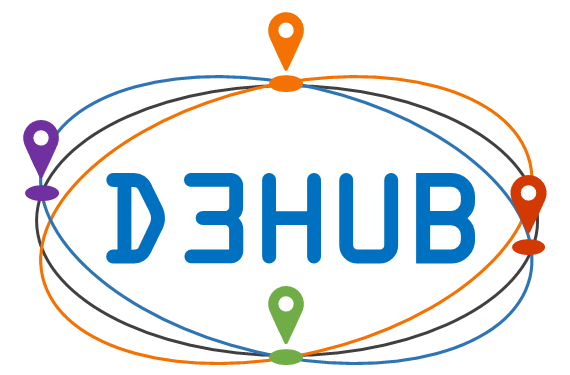Ana Moniche, Andalucía
Tourism is at a crossroads. Across Europe, destinations are being asked to deliver not only economic growth but also social well-being and environmental responsibility. In this context, the D3HUB project has one clear mission: to support destinations in making better decisions through data.
One of the pillars of this support is the definition of a common set of meaningful, useful, and shared indicators across territories facing similar challenges. The goal is to help Destination Management Organisations (DMOs) turn information into strategic action.
The project has identified four clusters of challenges that European destinations are currently navigating:
- How to better distribute tourist flows in space and time
- How to balance the needs of residents, visitors, and local stakeholders
- How to adapt to and mitigate the effects of climate change
- And how to support emerging destinations in their journey toward quality, sustainable tourism
None of these challenges can be addressed with improvised, short-term solutions. Sustainability, by definition, requires long-term thinking, and long-term thinking needs consistent measurement. If we want to know whether we’re heading in the right direction, we need to track our progress stably and comparably across time and across places.
That’s why D3HUB is developing a shared indicator framework based on internationally agreed standards. The indicators draw directly from the latest proposals aligned with the UN Tourism Statistical Framework for Measuring the Sustainability of Tourism (SF-MST), as outlined in the draft prepared by Moniche Bermejo et al. (2024). This proposal, co-authored by a group of five experts, has been submitted for review to the UN Tourism Expert Group on Measuring Sustainable Tourism (a technical working group coordinated by UN Tourism and the United Nations Statistics Division). The group includes representatives from national tourism administrations, statistical offices, and international organisations, working together to ensure consistency in the global measurement of sustainable tourism.
The alignment between D3HUB and international standards is reinforced by the participation of Turismo Andaluz in both the D3HUB project and the UN Tourism Expert Group on Measuring Sustainable Tourism. This dual involvement helps ensure that the indicators proposed for the future Competence Centre are not only relevant and actionable for destinations, but also consistent with the methodological framework promoted by UN Tourism.

In addition to the SF-MST, the indicators align with:
- The EU Tourism Dashboard (European Commission + JRC)
¹ UN Tourism. (2024, February). Statistical Framework for Measuring the Sustainability of Tourism (SF-MST)
[Draft]. https://webunwto.s3.eu-west-1.amazonaws.com/s3fs-public/2024-02/SF-MST_version_WEB_FEB2024.pdf - EUROSTAT’s ongoing work on sustainability in tourism statistics
- The OECD pilots and TSI projects conducted in several EU Member States
- And the UN Tourism’s INSTO network, which promotes sustainability monitoring at the destination level
Rooting the indicators in this ecosystem ensures coherence, comparability, and policy relevance. However, we also want the indicators to be useful, practical tools that respond to real needs.
For this reason, the D3HUB indicators were selected to help destinations:
- Understand tourism dynamics: who visits, when, where, and with what impacts
- Track whether strategies are working: are we reducing pressure on peak seasons? Are residents more satisfied?
- Compare their performance: how are we doing compared to peers with similar challenges?
- Most importantly, support better decisions: What needs to change in our tourism model to meet our sustainability goals?
This is what we mean when we say indicators should be “actionable.” They must serve as bridges between data and decisions, between diagnosis and strategy.
As part of the project, we are also developing a practical deliverable that will help destinations at different stages of their journey, including:
- A harmonised set of indicators adapted to each cluster
- A refined shortlist for those who are just starting or scaling up their monitoring systems
- And concrete examples of actions linked to each indicator, helping DMOs turn metrics into management tools
In the end, it’s not about the numbers; it’s about what we do with them.
D3HUB is helping European destinations move towards tourism models that are more sustainable, more resilient, and more grounded in facts. Because when data meets purpose, change becomes possible.
What Comes Next?
Stay tuned as we continue to develop tools, share insights, and support destinations on the path to smarter european tourism.
Visit our website for more updates: https://www.d3hub-competencecentre.eu
